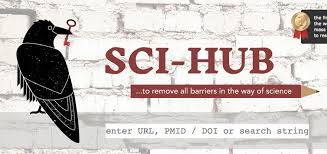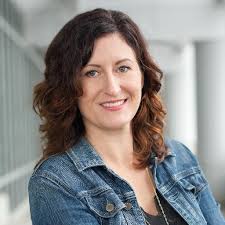open access (OA)
See the following -
The European Science Foundation’s EMRC Calls For The Adoption Of Open Access In Biomedical Sciences
The European Science Foundation’s (ESF) membership organisation for all medical research councils in Europe, the European Medical Research Councils (EMRC) has today released an ESF-EMRC Science Policy Briefing (SPB) entitled ‘Open Access in Biomedical Research’ highlighting the need to accelerate the adoption of open access to research articles in the biomedical sciences across Europe. Read More »
- Login to post comments
The First National Open Access Conference In Uganda
The Consortium of Uganda University Libraries (CUUL) in partnership with EIFL and the Regional Universities Forum for Capacity Building in Agriculture (RUFORUM) organised the first national conference on “Open access (OA), knowledge sharing and sustainable scholarly communication in Uganda” on May 21, 2013 at the Silver Springs Hotel, Kampala. Read More »
- Login to post comments
The Fix Isn't In
 By now, you’ve probably heard of Sci-Hub, a collection of millions of articles being gathered through borrowed or stolen library logins, then loaded onto servers abroad for anyone to download. The woman who started it has been called a modern-day Robin Hood. Also, a criminal. There has also been heated debate about why librarians aren’t doing more to back publishers in this fight. After all, these thieves are taking advantage of licensed scholarship that costs libraries billions of dollars annually! Surely we want to stop this rampant theft!
By now, you’ve probably heard of Sci-Hub, a collection of millions of articles being gathered through borrowed or stolen library logins, then loaded onto servers abroad for anyone to download. The woman who started it has been called a modern-day Robin Hood. Also, a criminal. There has also been heated debate about why librarians aren’t doing more to back publishers in this fight. After all, these thieves are taking advantage of licensed scholarship that costs libraries billions of dollars annually! Surely we want to stop this rampant theft!
- Login to post comments
The Future Of Scientific Publishing: Let's Make Sure It's Fair As Well As Transparent
 Scientific publishing has undergone a revolution in recent years – largely due to the internet. And it shows no sign of letting up as a growing number of countries attempt to ensure that research papers are made freely available. Publishers are struggling to adapt their business models to the new challenges. But it is not just the publishers who struggle. Peer-reviewed publications are extremely important for academics, who use them to communicate their latest research findings. When it comes to making decisions about hiring and promotion, universities often use an academic’s publication record. However, the use of publication consultants and increasingly long lists of authors in certain disciplines are changing the game. So where will it all end?
Scientific publishing has undergone a revolution in recent years – largely due to the internet. And it shows no sign of letting up as a growing number of countries attempt to ensure that research papers are made freely available. Publishers are struggling to adapt their business models to the new challenges. But it is not just the publishers who struggle. Peer-reviewed publications are extremely important for academics, who use them to communicate their latest research findings. When it comes to making decisions about hiring and promotion, universities often use an academic’s publication record. However, the use of publication consultants and increasingly long lists of authors in certain disciplines are changing the game. So where will it all end?
- Login to post comments
The Growing Trend Of Clinical Research Crowdsourcing
 The trend of open collaboration has led to innovation across multiple industries. For decades, big pharma has been known as conservative and slow to change. Today however, there is a growing movement toward open access and crowdsourcing scientific information to accelerate research and development. Open-source platforms have let developers create multiple crowdsourcing applications, that are further enabling the crowdsourcing trend in the life sciences industry, as well.
The trend of open collaboration has led to innovation across multiple industries. For decades, big pharma has been known as conservative and slow to change. Today however, there is a growing movement toward open access and crowdsourcing scientific information to accelerate research and development. Open-source platforms have let developers create multiple crowdsourcing applications, that are further enabling the crowdsourcing trend in the life sciences industry, as well.
- Login to post comments
The Institution Of Engineering And Technology Signs With Copyright Clearance Center
The First Not-for-Profit Engineering Publisher to Offer Open Access Journal Articles Implements RightsLink® for Open Access to Manage Article Processing Charges for All Publications Read More »
- Login to post comments
The Lancet Launches Free, Open-Access Online Global Health Journal
pre-eminent biomedical science journals and arguably the leading research publication focused on global health, has launched its first ever free, open-access journal – devoted to covering global health. Read More »
- Login to post comments
The New Aaron Swartz Documentary At Sundance
“The Internet’s Own Boy,” a documentary about the life and death of Aaron Swartz, premièred on Monday at the Sundance Film Festival, where it received a standing ovation. The life of Swartz as a coder and an Internet thinker is well known. [...] The documentary, shot in the course of that year, gives us relatively little new information about the legal controversy, but it is deeply revealing about who Swartz was. Read More »
- Login to post comments
The Next Level Of Open Health Data Tracking Is Good For You
Companies like Google, Facebook, and Amazon are collecting enormous amounts of information all day, every day. They use powerful supercomputers to analyze this data. Many people use this to better market products to consumers, for instance. Read More »
- Login to post comments
The Ontario Institute for Cancer Research and the Structural Genomics Consortium develop and give away new drug-like molecule to help crowd-source cancer research.
 Through a novel open source approach the molecule has been made freely available to the cancer research community to help discover new therapeutic strategies for cancer patients sooner...Researchers from the Ontario Institute for Cancer Research (OICR) and the Structural Genomics Consortium (SGC) at the MaRS Discovery District in Toronto have developed a new drug prototype called OICR-9429 and made it freely available to the research community. Already research conducted by international groups using OICR-9429 has shown it to be effective in stopping cancer cell growth in breast cancer cell lines and a specific subtype of leukemia cells.
Through a novel open source approach the molecule has been made freely available to the cancer research community to help discover new therapeutic strategies for cancer patients sooner...Researchers from the Ontario Institute for Cancer Research (OICR) and the Structural Genomics Consortium (SGC) at the MaRS Discovery District in Toronto have developed a new drug prototype called OICR-9429 and made it freely available to the research community. Already research conducted by international groups using OICR-9429 has shown it to be effective in stopping cancer cell growth in breast cancer cell lines and a specific subtype of leukemia cells.
- Login to post comments
The Open Access Schism: Recapitulating Open Source?
...It seems that the open access world has just entered the schism phase that mirrors the similar split between those espousing "free software", and those who resolutely call it "open source." This most recent development is captured in yet another brilliant contribution from the unofficial chronicler of the open access world, Richard Poynder...
- Login to post comments
The Open Access Week Community To Hit Its Stride At This Year's Event
A celebration of the open access movement, Open Access week hosts events that are aimed at highlighting how open access has transformed the landscape of society due to increased access to scientific research. Read More »
- Login to post comments
The Open Patient: Advocating for Open Access to Medical Data
 Steven Keating had always been interested in data and learning about things, which is why he volunteered to do a research scan when he was a student. The scan revealed an abnormality. In 2014, the abnormality had grown into a massive tumor. Soon he learned that there were many barriers keeping him from accessing his own data. "And that's what I've been sharing, which is this question: How come as a patient we're last in line for our own data? How come my doctors and my university researchers can see my tumor genome and I can't?"
Steven Keating had always been interested in data and learning about things, which is why he volunteered to do a research scan when he was a student. The scan revealed an abnormality. In 2014, the abnormality had grown into a massive tumor. Soon he learned that there were many barriers keeping him from accessing his own data. "And that's what I've been sharing, which is this question: How come as a patient we're last in line for our own data? How come my doctors and my university researchers can see my tumor genome and I can't?"
- Login to post comments
The Opportunities And Challenges Of Online Open-Access Publishing
This week around 7,000 political scientists will descend on Washington for the annual meeting of the American Political Science Association (APSA)... The theme of this year’s meeting is “Politics after the Digital Revolution.”...
- Login to post comments
The Past Year In Open Access
Today marks the start of Open Access Week 2013. Open Access Week is a global event for the academic and research community to continue to learn about the potential benefits of Open Access, to share what they’ve learned with colleagues, and to help inspire wider participation in helping to make Open Access a new norm in scholarship and research... Read More »
- Login to post comments